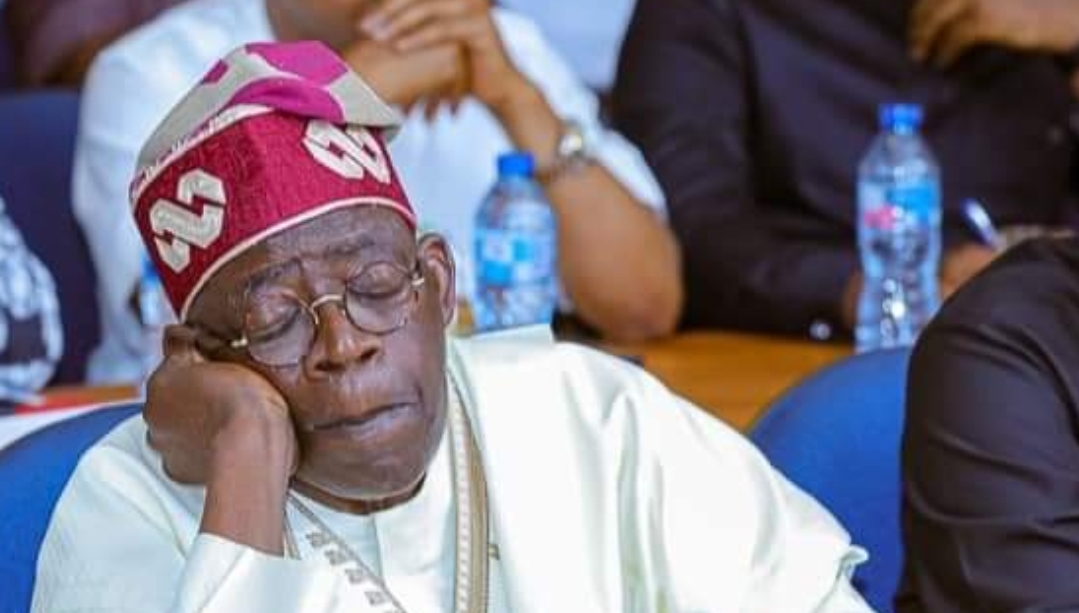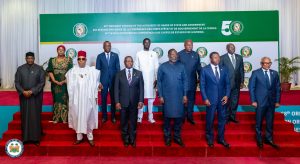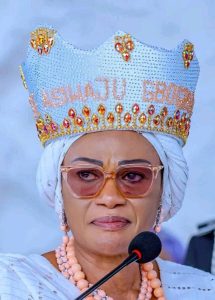LAGOS, 19 July 2025 – A press release from the Statehouse, penned by Special Adviser Sunday Dare, has ignited widespread criticism for its aggressive tone and what detractors call a selective portrayal of the Tinubu administration’s record. Issued in response to the African Democratic Congress (ADC)’s allegations that President Bola Tinubu’s government exploited the state burial of former President Muhammadu Buhari for political gain, the statement has been lambasted as unpresidential, evasive, and riddled with exaggerated claims.
The ADC’s original statement, released earlier this week, accused the administration of turning Buhari’s funeral into a “political spectacle” to distract from ongoing economic woes and governance failures. In retort, Dare’s release dismissed the opposition party as a “poorly amalgamated political contraption” engaging in a “laughable tantrum” and “dancing on [Buhari’s] grave for relevance.” Critics argue this language stoops to personal attacks rather than addressing substantive concerns, undermining the dignity expected from official communications.
Political analysts have decried the release as emblematic of a defensive administration increasingly intolerant of dissent. “This isn’t governance; it’s playground bullying,” said Dr. Chidi Okoro, a Lagos-based commentator and former advisor to the People’s Democratic Party (PDP). “By resorting to ad hominem insults against the ADC – a party already facing internal challenges – the government avoids grappling with legitimate questions about the burial’s orchestration and its timing amid national hardships.”
At the heart of the controversy is the state burial itself, held with pomp in Daura last week, attended mostly by sycophantic Nigerian politicians. While the press release insists it was a solemn affair honouring a “statesman,” opponents point to orchestrated elements such as high-profile arrivals and media saturation as evidence of political theatre.
Dare’s response accuses the opposition of exploitation, but critics counter that the government’s own narrative framing the event as a testament to Tinubu’s “Renewed Hope Agenda” reeks of opportunism.
The release’s most contentious section is its laundry list of purported achievements, presented as “tangible, measurable” results to contrast with the ADC’s “sanctimonious whining.” However, a closer examination reveals discrepancies and oversimplifications that fail to acknowledge Nigeria’s persistent crises.
Naira stabilisation and exchange rate harmonisation: The statement claims the naira has been “stabilised” and “decoupled from oil market volatility.” Yet, as of 18 July 2025, the USD/NGN rate hovered around 1,531.93, a significant depreciation from pre-Tinubu levels and far from stable. Critics, including economists from the World Bank, note ongoing volatility and inflation, with poverty rates climbing to 46% in recent years, affecting over 104 million Nigerians.
Oil production at 1.7 million barrels per day (MBPD): While production has indeed risen to around 1.745 MBPD in some reports, this falls short of ambitious targets like 2 MBPD by year’s end and exceeds Nigeria’s OPEC quota of 1.5 MBPD for the second time this year, raising questions about sustainability and compliance. Experts argue that gains are overshadowed by oil theft and insecurity in the Niger Delta, which continue to hamper long-term output.
Infrastructure deliveries: Projects like the Ogbia-Nembe Road, Lagos-Calabar Coastal Highway, and Sokoto-Badagry Road are touted as successes. The administration has flagged off several, including the 700km Lagos-Calabar route, but many remain ongoing or mired in funding delays.
Other claims: Increased FAAC allocations (up over 60%), salary payments in debt-ridden states, electricity restoration, NELFUND student loans for 400,000 beneficiaries, regional commissions, and a consumer credit scheme are listed as triumphs. While some reforms, like subsidy removal and forex unification, have attracted foreign direct, they have also triggered widespread pain, including soaring food prices and unemployment. Amnesty International has faulted the government’s “empty” directives on security, with resurgent violence in the northeast and Plateau State killings going unchecked.
Broader assessments paint a mixed picture. A Premium Times editorial from last year highlighted a “mismatch between performance and reality,” citing insecurity, lopsided appointments, and constitutional disregard. Afenifere, a Yoruba socio-cultural group, recently branded Tinubu’s tenure a “nightmare of regressing hopelessness and despair,” prompting the presidency to defend with similar lists of achievements.
Supporters of the administration, including APC governors, maintain that reforms are necessary pains for long-term gains, with doubled revenues and reduced debt burdens as evidence. Yet, public polls reflect dissatisfaction, with economic hardship rendering the “Renewed Hope” agenda unconvincing for many.
As Nigeria mourns Buhari a figure whose legacy remains divisive, the press release’s combative stance risks deepening polarisation. Governance should focus on unity and results, not mudslinging.






